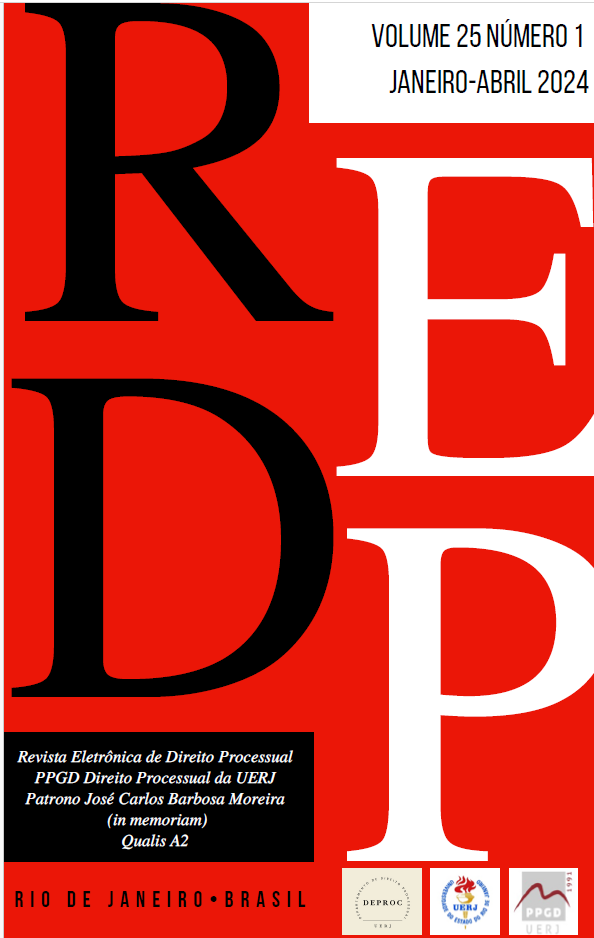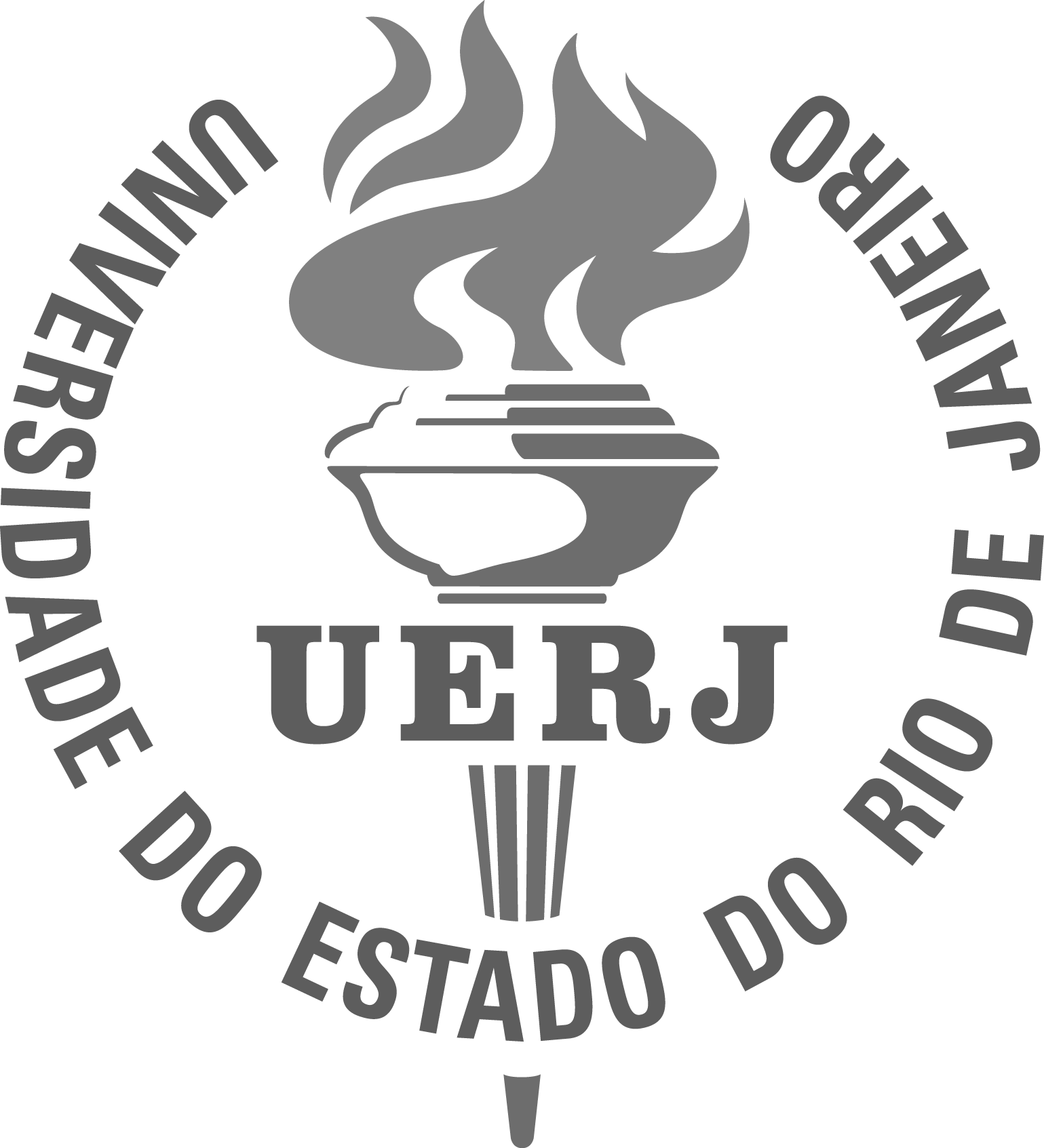A RESSIGNIFICAÇÃO DA COMPREENSÃO DO INTERESSE RECURSAL NOS EMBARGOS DECLARATÓRIOS INTEGRATIVOS
DOI:
https://doi.org/10.12957/redp.2024.81882Abstract
The purpose of this essay is to discuss the hypothesis of an autonomous interest in appeal for the discussion of the grounds of a court decision by means of a motion for clarification with integrative effects. The traditional understanding of the requirement of succumbence as a model for appeal interest deserves to be re-dimensioned in the face of the constitutional and infra-constitutional requirement of adequate and well-founded decisions, especially under the bias imposed by the 2015 Code of Civil Procedure, to exhaust the essential discursive nuclei presented in the arguments and counter arguments of the parties. The central discussion of this work is based on the presence of an interest in appeal when the appellant, despite having obtained the material object discussed in the case, has not had an argument launched as an object of analysis by the court decision, which would lead to an interest in the motion to stay the proceedings, despite the orthodox theory that the absence of succumbence causes the absence of an interest in appeal. The 2015 Code of Civil Procedure sheds light on the subject because the grounds of the decision are capable of forming a binding precedent, in addition to authorizing the possibility of a rescission
action in certain cases. The hypothesis is that not allowing the plaintiff to have a proper appeal interest to discuss the grounds, including to question the reasons and the legal basis applied, causes legal uncertainty. From this point of view, the motions for clarification authorize this type of questioning in order to exhaust the discussion put before the court, especially when the issue involves qualified precedents. If the law is enforced by coercion, as Hans Kelsen put it, it is certain that the construction of the decision must be permeated by reason and discursive and exhaustive reasoning, a role that the remodeling of the traditional dogma of the understanding of appeal interest in motions for clarification proposes. The method adopted is descriptive, based on deduction, and the technique of bibliographical research and case analysis were also used at the appropriate times. It was possible to see that the hypothesis was duly proven.
Downloads
Published
How to Cite
Issue
Section
License
Copyright (c) 2024 Antônio Veloso Peleja Júnior, Vanderson Vanderson Rafael Nascimento

This work is licensed under a Creative Commons Attribution 4.0 International License.
Todos os artigos publicados na Revista Eletrônica de Direito Processual (REDP) (Departamento de Direito Processual, Universidade do Estado do Rio de Janeiro, Brasil) são licenciados por meio de uma Licença Creative Commons - Atribuição 4.0 Internacional (CC BY 4.0).
Os autores retêm os direitos autorais de seu artigo e concordam em licenciar seu trabalho com a licença CC BY 4.0, aceitando assim os termos e condições específicos desta licença disponíveis no seguinte website: https://creativecommons.org/licenses/by/4.0/legalcode.
- Os autores concedem à REDP o direito de primeira publicação, de se identificar como publicadora original do trabalho e concedem à revista uma licença de direitos não exclusivos para utilizar o trabalho das seguintes formas: Reproduzir, vender e distribuir cópias eletrônicas ou impressas do manuscrito como um todo, de partes específicas do manuscrito e de suas traduções para qualquer idioma;
- O uso do artigo por terceiros é livre, contanto que a integridade da publicação seja mantida e seus autores originais, periódico de primeira publicação e detalhes de citação sejam identificados.
Dentro dos termos da licença, os autores podem entrar em acordos contratuais adicionais separados para a distribuição não exclusiva da versão publicada do trabalho na revista.
Copyright and Licensing
All articles published in the Procedural Law Electronic Review (REDP) (Department of Procedural Law, State University of Rio de Janeiro, Brazil) are licensed under a Creative Commons License - Attribution 4.0 International (CC BY 4.0).
- Authors retain copyright to their article and agree to license their work under the CC BY 4.0 license, thereby accepting the specific terms and conditions of this license available at the following website: https://creativecommons.org/licenses/by/4.0/ legal code.
- Authors grant REDP the right of first publication, to identify itself as the original publisher of the work, and grant the journal a non-exclusive license to use the work in the following ways: Reproduce, sell and distribute electronic or printed copies of the manuscript as a whole, of specific parts of the manuscript and its translations into any language;
- Use of the article by third parties is free, as long as the integrity of the publication is maintained and its original authors, first publication journal, and citation details are identified.
Within the terms of the license, authors may enter into separate additional contractual agreements for the non-exclusive distribution of the published version of the work in the journal.






